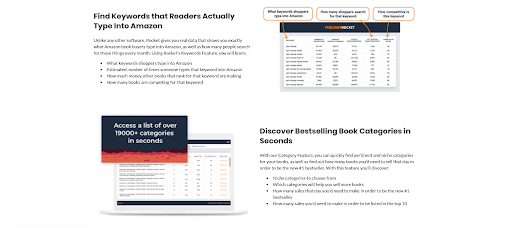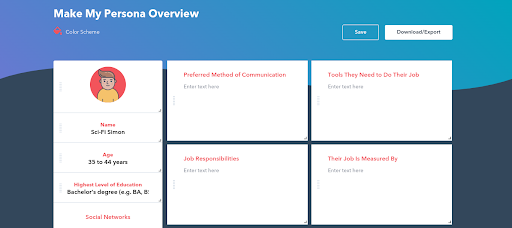Finding the genre for your book is a step that doesn’t get spoken about much. Many people out there want to be an author but can’t commit to a genre. And it makes sense; it’s a huge commitment. In this article, we’ll go over five tips for choosing the best genre for you to write in.
1. Make Sure You Find a Category That Sells
Now, depending on your goals as an author, this first point may be irrelevant. I know some of you may want to write a few novels as a hobby or passion project, and that’s totally fine–but if you want to sell books, you need an audience who’ll buy them.
With finding your audience, you need to be as specific as you can.
Many authors try to create some genre-bending unique book that ends up as a mish-mash of genre tropes that doesn’t have a set audience who’d read it–and they don’t know who to market their book to.
Instead, look at what’s already selling. A great way to do that is to browse categories and see what books are ranking highly. You can go a step further and use a tool like Publisher Rocket to get a range of Amazon metrics and data to see what genres are popular.

2. Find Your Ideal Reader
In the last point, we touched on finding a readership for your book. If you can’t find an audience that’ll want to read your book, then your author business will struggle to get off the ground.
But why not go a step further and look at who your ideal reader is? A great way to do that is to create a buyer or reader persona. Basically, the persona will be a profile of your “ideal reader”– what they like, what motivates them, and everything else you need to get inside the mind of your audience. HubSpot has a great free guide and accompanying tool for creating buyer personas that business owners can use.
Once you’ve got a reader persona ready, you can base your books, covers, newsletters, and all of your marketing to what suits that reader persona.
3. Ask Yourself What Topics You Want to Explore
The genre you write in will give you an opportunity to explore a range of literary themes and a different part of what makes us human. Specific genres do a great job of exploring certain topics:
- Horror looks at the impact fear can have on people
- Sci-Fi explores space and the impact technology can have on us
- Romance explores the complicated emotions of love
Now, you can explore a variety of themes through a range of genres. For example, the sci-fi film District 9 covered prejudice. But some genres lend themselves better to specific topics. So if you think about what you want to explore, it might help you choose the perfect genre.
4. Read a Lot in the Genre
To be serious about writing books, you’ve got to be serious about reading books. A lot of books.
When you read in your genre, you get to understand the tropes and conventions your audience is used to. As we discussed earlier, genre audiences are expecting a few particular elements in the books they read, and they enjoy these tropes when they’re used well. As an author, when you’re familiar with those tropes, you learn when you’re being too predictable, and when it is a good opportunity to break convention and add your own flair.
There are a few reservations new authors have about reading too much in their own genre, so let’s do some myth busting here and debunk them.
Genre Blindness: Genre blindness is when a character acts as if they’ve never seen the story they’re in before. Or, as TV Tropes mentions, it’s why the characters in Three’s Company will leap to an outrageous conclusion every week because of some zany misunderstanding instead of talking things through. Many authors want to avoid blindness for their genre, so they will avoid reading books in their genre. But personally, I think failing to deliver on readers’ expectations is a bigger risk than being overly influenced by other books.
Fears Like “If I spend too much time reading, I won’t be able to write”: This is true to a degree. If you read too much, you’ll avoid taking action and writing. However, you still need to find time to read and research other books in your genre. The real task is making sure your book, characters, and ideas are the most important thing.
Takeaway: Read a wide range of books in your genre to get inspiration and knowledge on what works and what doesn’t. It will inspire ideas, not restrict them. So buy some new batteries for your book reading light and start reading books long into the night (or whenever you have time).
5. Figure out What Genre You Enjoy Writing in
When choosing a genre to write in, you need to choose a genre you enjoy writing in! Sure, some authors succeed writing in genres they don’t specifically like, but if you’re starting your first story, you’ll have a much better chance of a long career if you choose a genre you enjoy.
Don’t be mistaken, there will be times when writing feels like work, even if you love the genre. But writing in a genre you don’t like can lead to a headache every time you sit down to write.
The best way to find your perfect genre is to think about the topics above:
- What books do you enjoy reading?
- Is there a particular topic or theme you enjoy?
- Is there a specific audience you like to be around?
You might find there are two genres that fit all of these guidelines. From there, experiment and see what you enjoy writing the most.
Final Thoughts
Make sure you do your due diligence when choosing a genre to write in. You want to make sure you’re comfortable writing it and that you can sell books in that specific genre.
Cheers!
***
Dave Chesson is the founder of Kindlepreneur.com and creator of Publisher Rocket, a software that helps authors market their books more effectively.
Twitter: https://twitter.com/DaveChesson
Facebook: https://www.facebook.com/KindlePreneur/
Photo by Kimberly Farmer on Unsplash


